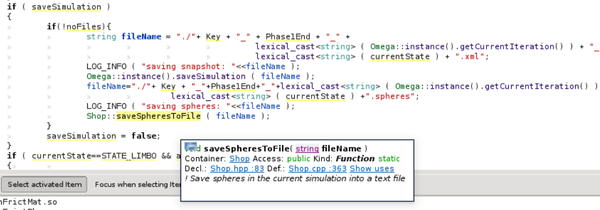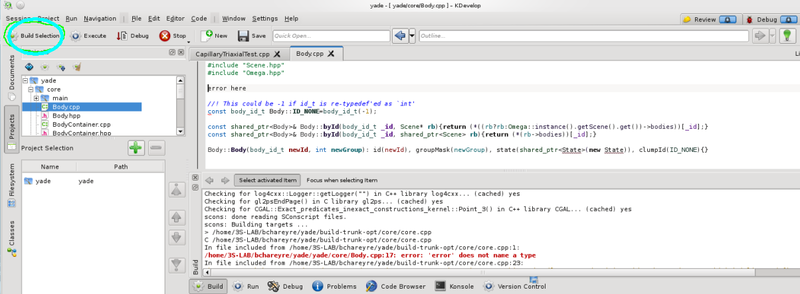Using kdevelop4
From Yade
Yade sources come with a yade.kdev4 project file that you can open with kdevelop4 (open Kdevelop4, then go to project->open->yade.kdev4, keep "yade" as the root folder name to avoid problems). If for some reasons the default project does not work for you, you can easily generate a new Yade project : delete the existing yade.kdev4 and (hidden) folder .kdev4; start empty kdevelop sesion and "import" a project, then select the yade directory, but don't give any "project" file *.kdev4 (the old yade.kdevelop project for kdev3 cannot be read either), as it will have to be generated automaticaly; do not select anything on this first window, and go directly to next one. Select project type "custom build", then go to project configuration and set build executable "scons".
Yade can be compiled and debbuged from kdevelop. It gives nice error output with links to where the errors are, etc. There is also a rich class and member description, auto-completion, display of functions signatures,... as shown in screenshots.
Also check page on debugging.
WARNING: Kdevelop embedded editor is removing trailing spaces by default when it opens a file. While this is generally usefull, it is not desirable if you plan to commit your work (it would clutter commits with a lot of empty lines attributed to you). This option has to be turned off in two different places : editor->configure->editing->general->remove trailing spaces AND editor->configure->open/save->general->remove trailing spaces.

